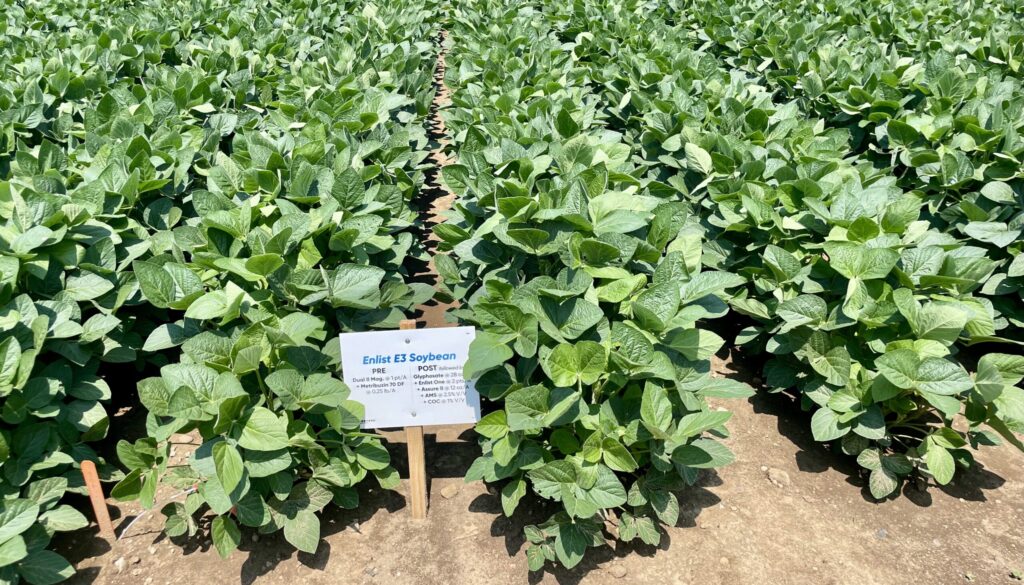Court rules USDA’s GE crop rules break law, must be reworked
US regulators made “significant” errors in adopting a new rule four years ago around the release of genetically modified crops, and must now strengthen oversight, a federal court ruled this week.
The US District Court for the Northern District of California sided with the National Family Farm Coalition and other plaintiffs in finding that a rule issued in 2020 by the US Department of Agriculture (USDA) related to regulation of genetically engineered (GE) crops ran afoul of other federal laws.
Close to 100 new GE plants have been exempted from USDA oversight since the 2020 rule took effect. The court vacated the rule, effective Dec. 2, and sent it back to USDA for “reconsideration consistent with this order.”
“This is a critical victory on behalf of farmers, the planet, and scientific integrity,” George Kimbrell, legal director for the plaintiff Center for Food Safety, and counsel in the case, said in a statement. “USDA tried to hand over its job to [the] pesticide industry and the Court held that capitulation contrary to both law and science.”
Up until 2020, most GE crops were evaluated by the USDA’s Animal and Plant Health Inspection Service (APHIS) before they were allowed to be used commercially. But during the first Trump Administration, the agency took a deregulatory course, making it easier to bring new genetically altered plants to market.
Several environmental groups sued in 2021, arguing that these 2020 rules violated the Endangered Species Act, the National Environmental Policy Act, and the Plant Protection Act.
In this week’s decision, US District Judge James Donato ruled that the USDA violated the Plant Protection Act, as well as the Administrative Procedure Act, by failing to account for harm caused by the 2020 rules. In re-writing these regulations, Donato wrote: “APHIS’s errors are significant.”
For over a decade the agency “believed it should incorporate” its authority to regulate GE crops under its authority to monitor “noxious weeds,” of which GE crops can be classified in some circumstances, and then shifted course without so much as a mention of its previously stated concerns, Donato ruled.
Among other things, the 2020 rules do not account for the ability of GE crops to pollinate and contaminate non-GE plants — which has happened throughout the country, disrupting markets and causing lost sales to some farmers.
Harms to farmers “are readily attributable to APHIS’s deregulation decision” that led to the 2020 rules because “the paring back of regulatory oversight is what gives rise to the injuries,” the court ruled.
“For the past few decades, America’s family farms have struggled under the control of the corporate agrochemical industry, making it nearly impossible for farmers to find anything other than patented-GE seed and pesticide technologies,” said Jim Goodman, Board President of plaintiff National Family Farm Coalition. “Today’s Court decision is a victory for family farms… If the agrochemical industry is allowed to determine the approval of their patented products, farmers will have no measure of fairness in the seed market.”
The USDA declined to speak and deferred to the Department of Justice, which typically does not comment on such litigation.
There are many types of genetically engineered crops, including corn, soybeans, sugar beets, canola, cotton and alfalfa. Monsanto (now part of Bayer CropScience) popularized the spread of the GE crops when it introduced plants genetically altered to withstand treatments with glyphosate. Herbicide-tolerance is the top genetic trait in GE crops worldwide, according to industry data.
The court order did not rule on the issue of compliance with the Endangered Species Act or the National Environmental Policy Act, but appeared sympathetic to the plaintiff’s argument that the 2020 rules violated these laws as well.
Judge Donato did, however, order the USDA to meet with plaintiffs to “jointly propose a status conference date for the remaining procedural challenges under the ESA and NEPA.”
(Featured image by Douglas Main.)





December 5, 2024 @ 5:05 pm
It’s so upsetting that products that can kill animals such as round up is allowed to use at all.
Why can’t something be done to stop this
Judee Fearn